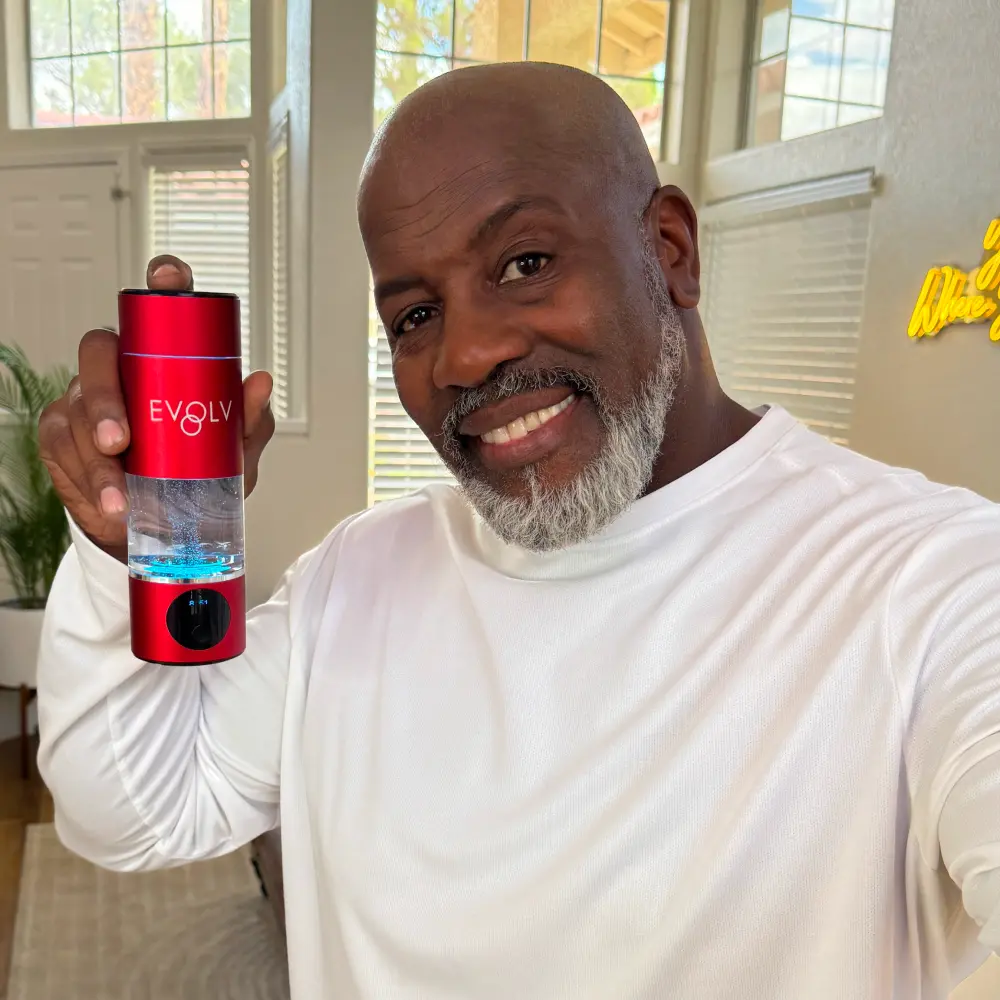
Hydrogen water is gaining popularity among health enthusiasts, athletes, and those seeking a wellness edge. Known for its powerful antioxidant properties, hydrogen-rich water is infused with molecular hydrogen (H₂) to potentially boost energy, reduce inflammation, and support recovery. But here’s a question many ask: Does hydrogen water contain electrolytes?
The short answer: Not necessarily. But the long answer reveals a lot about how hydrogen water works, and how it can fit into your wellness routine.
What Is Hydrogen Water?
Hydrogen water (also called hydrogen-infused water or H2 water) is simply water that has extra molecular hydrogen gas (H₂) dissolved in it. Molecular hydrogen acts as a selective antioxidant, targeting only harmful free radicals in the body (Ohta, 2014).
Unlike alkaline water, which is often loaded with added minerals to raise pH, hydrogen water focuses on antioxidant support, not electrolyte balance.
Electrolytes 101: Why They Matter
Electrolytes are essential minerals like sodium, potassium, magnesium, calcium, and chloride. These minerals are responsible for:
Maintaining fluid balance
Supporting nerve function
Regulating muscle contractions
Aiding cellular hydration
You lose electrolytes through sweating, exercise, and illness, so replenishment is critical—especially during intense workouts or hot weather.
Does Hydrogen Water Naturally Contain Electrolytes?
Pure hydrogen water, whether created through electrolysis, hydrogen tablets, or bottled options, does not typically contain added electrolytes.
Here’s why:
The focus of hydrogen water is the infusion of H₂ gas—not minerals.
Electrolytes must be added separately if you want them in your drink.
Many commercial hydrogen water bottles do not include minerals unless explicitly labeled.
That said, some premium hydrogen water brands may include electrolytes, combining hydration and antioxidant benefits in one bottle. Always check the label!
Hydrogen Water vs. Electrolyte Water: What’s the Difference?
|
Feature |
Hydrogen Water |
Electrolyte Water |
|
Contains Molecular Hydrogen |
Yes |
No |
|
Contains Electrolytes |
Not always (unless added) |
Yes |
|
Antioxidant Properties |
Yes |
No |
|
Target Audience |
Wellness seekers, anti-aging, recovery |
Athletes, rehydration, heat exposure |
So, hydrogen water and electrolyte water serve different functions. But you can benefit from both, depending on your health goals.
Can You Add Electrolytes to Hydrogen Water?
Absolutely!
If you're someone who sweats a lot, exercises intensely, or simply wants to combine the benefits of electrolyte balance with H₂ antioxidant power, you can:
Mix electrolyte powder into your hydrogen water (check if it affects H₂ concentration)
Use hydrogen water tablets in mineral water (some brands allow this)
Choose hybrid hydrogen + electrolyte bottled water options
However, adding too many minerals may destabilize hydrogen molecules, depending on the formulation. Use science-backed electrolyte supplements that are H₂-compatible.
Who Should Drink Hydrogen Water with Electrolytes?
You may benefit from hydrogen water that includes electrolytes if you are:
An athlete or fitness enthusiast
Recovering from dehydration or illness
Managing muscle cramps or fatigue
Living in hot or humid climates
Interested in anti-aging and longevity
Combining electrolytes and hydrogen-rich water may help with sports recovery, improved cellular hydration, and oxidative stress reduction.
Final Verdict: The Truth About Electrolytes in Hydrogen Water
Hydrogen water does not inherently contain electrolytes, unless they are specifically added. While hydrogen water brings a range of benefits, including antioxidant support, those needing replenishment from sweating or exercise should consider adding electrolytes to the mix.
In short: hydrogen water and electrolytes are not mutually exclusive—but they're not automatically combined.
References
Ohta, S. (2014). Molecular hydrogen as a preventive and therapeutic medical gas: initiation, development and potential of hydrogen medicine. Pharmacological Therapeutics, 144(1), 1–11. https://doi.org/10.1016/j.pharmthera.2014.04.006
Nicolis, E., Lam, S., & Cortese-Krott, M. M. (2020). Hydrogen therapy for the treatment of cardiovascular diseases: current knowledge and future perspectives. International Journal of Molecular Sciences, 21(6), 2069. https://doi.org/10.3390/ijms21062069
LeBaron, T. W., Kura, B., Kalocayova, B., Tribulova, N., & Slezak, J. (2019). A new approach for the prevention and treatment of cardiovascular disorders. Molecular hydrogen significantly reduces oxidative stress. Medical Gas Research, 9(2), 74–79. https://doi.org/10.4103/2045-9912.259293











